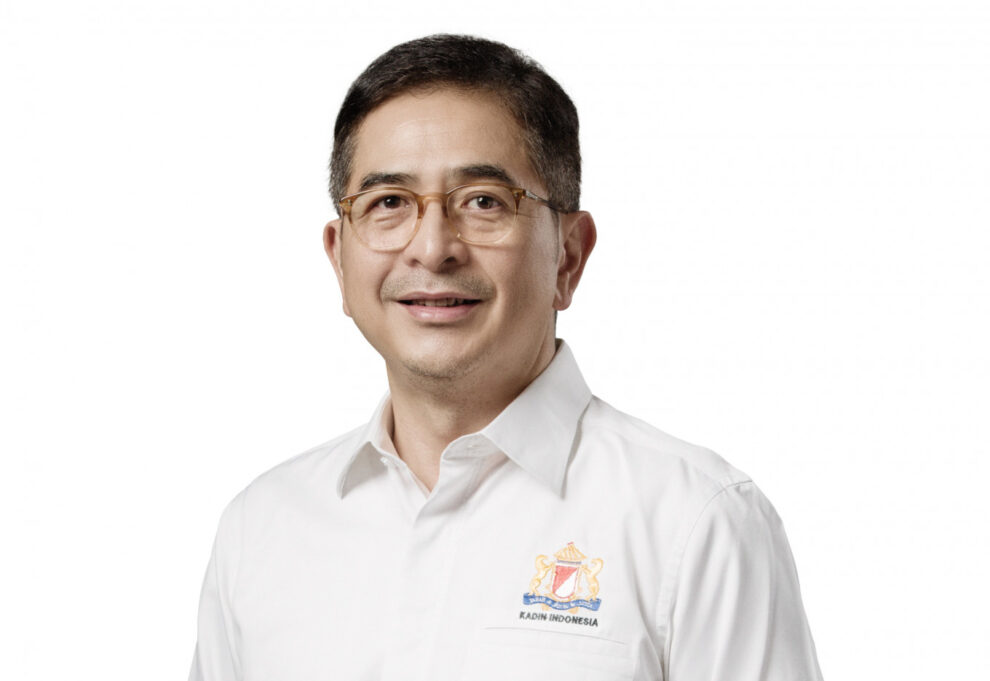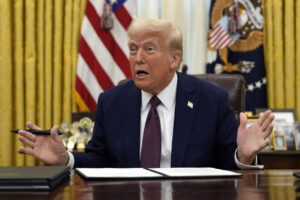Asean Business Advisory Council president Arsjad Rasjid speaks about the programs he plans to push in his chairmanship.
JAKARTA – In January, President Joko “Jokowi” Widodo kicked off Indonesia’s 2023 ASEAN chairmanship, the second-largest international forum he has chaired, following last year’s Group of 20 presidency. As part of that presidency, Indonesia also leads the regional Business Advisory Council (BAC) this year.
ASEAN-BAC chairman Arsjad Rasjid, who is also the chairman of the Indonesian Chamber of Commerce and Industry (KADIN) as well as the president director of PT Indika Energy, spoke to The Jakarta Post‘s Aditya Hadi about programs he aims to push in his chairmanship.
Question: What is Indonesia’s overall vision for its ASEAN presidency?
Answer: On a general level, we have the motto ASEAN Matters: Epicentrum of Growth. In the BAC, we developed that into ASEAN Centrality: Innovating for Greater Inclusivity.
On “centrality”, we want to make the region a center of trade and investment, both among ourselves and other regions too. Meanwhile, “inclusivity” means we do not want to leave anybody behind.
ASEAN is a region with more than 700 million people, of which 270 million are from Indonesia. That is why, as a big brother, we want to share the models that work in Indonesia with our brothers and sisters in ASEAN.
What are the programs you would like to push to achieve that mission?
One of the priorities is the digital transformation movement, which includes [initiatives titled] QR Code, Digital Lending and Wiki Entrepreneurship.
Through QR Code, we want to establish a cross-border common digital payment [system] that can work across the region. The concept itself has been around since 2021.
The mechanism has launched in Thailand, and we already have agreements with Singapore, Malaysia and the Philippines.
In digital lending, our objective is to empower fintech and digital platforms to connect more lenders and businesses, so business owners can have access to alternative funds. Thus, we hope it can reduce the cost of funding.
We realize digital lending has a negative connotation in Indonesia. That is why we are trying to find the best formula to help all business owners in Southeast Asia.
It is a new initiative, and we are trying to start a conversation about it, so people can understand what currently exists in Singapore, what exists in Malaysia and so on, regarding digital lending.
Meanwhile, through Wiki Entrepreneurship, we want large companies and micro, small and medium enterprises (MSMEs) to network and learn from each other through a Wikipedia-like platform. In the G20, we have built a similar solution with Japan, and now we want to do the same thing in ASEAN.
As for sustainable development, we want to pursue it through the programs Net Zero Hub and Carbon Center of Excellence.
Aside from that, we also want to strengthen our health security through the One Shot Campaign. The COVID-19 pandemic has taught a good lesson: we need to help each other during crises, especially by ensuring access to vaccines and medicine.
This campaign also covers other diseases that may only spread in specific countries, such as tuberculosis in Indonesia and Malaria in Vietnam.
We are also pushing for food security in the region through the Closed-Loop Agriculture Models program that can be [applied to different] commodities depending on the agricultural conditions and potential in each country.
In Indonesia, for example, sorghum has a huge potential to be pushed into this closed-loop model to become an alternative commodity to improve national food security.
Those programs vary in terms of [what can be achieved] this year, but the concepts and foundations for those programs were started during Indonesia’s G20 presidency and previous ASEAN presidency.
What are the challenges in developing the QR Code program?
The problem is that Southeast Asian countries vary in the digital literacy of their people. Some countries have matured in digital payments, but some have not.
That is why we decided to start with just a few countries to show that the solution is feasible. Then, other countries could follow. The QR Code program should be inclusive, so we will not leave any country behind.
Another challenge is managing local currency settlement for cross-border transactions.
What is the role of ASEAN-BAC in the energy transition?
Southeast Asia is usually called the lungs of the world, due to its vast areas of rainforest. Because of that, we need to have a voice in the energy transition discussion.
That is why we have the Net Zero Hub and Carbon Center of Excellence programs.
In energy transition, there are three big aspects, namely power, transportation and industry. Indonesia has seen improvements and collaboration in all of those aspects, including with the push for electric vehicles. [My company], Indika Energy, has also invested in [an electric two-wheeler manufacturer] Alva One.
Indonesia has 40 percent of global nickel reserves, while the Philippines has around 10 percent. If combined, that becomes 50 percent, so we can build a partnership, like we’ve done with Australia, which has Lithium reserves.
Overall, in ASEAN, we try to provide a platform for countries to share technology and insight on global sustainability.
What do you mean by trade facilitation, as one of the priorities for ASEAN-BAC this year?
In the G20, we discussed initiatives like the Just Energy Transition Partnership (JETP), a financing scheme to retire the country’s coal power plants. That discussion will continue at the ASEAN level.
What do you mean by trade facilitation, as one of the priorities for ASEAN-BAC this year?
ASEAN-BAC tried to facilitate dialogue between business players and governments to promote economic integration and ease business [activity in the region]. That dialogue might optimize regional trade agreements, such as the ASEAN Trade in Goods Agreement (ATIGA) and the Regional Comprehensive Economic Partnership (RCEP).
How can ASEAN attract investment during a trade war between East and West?
ASEAN could be an alternative investment [destination] to China. We have been non-bloc for a long time, and that can become our advantage in the current geopolitical conditions.
What do you think about the United States Inflation Reduction Act (IRA), which tends to give tax incentives to companies that use non-Chinese supply chains?
That is also an opportunity for us. In Indonesia, we try to diversify the supply chain of every product. For example, in electric battery processing, besides China, we also try to have other investors and local companies work on it. As car manufacturers, we have Wuling from China, but we also have Hyundai from South Korea.
The point is, people can come in and choose which supply chain they want to use and invest in.
Source: asianews.network










